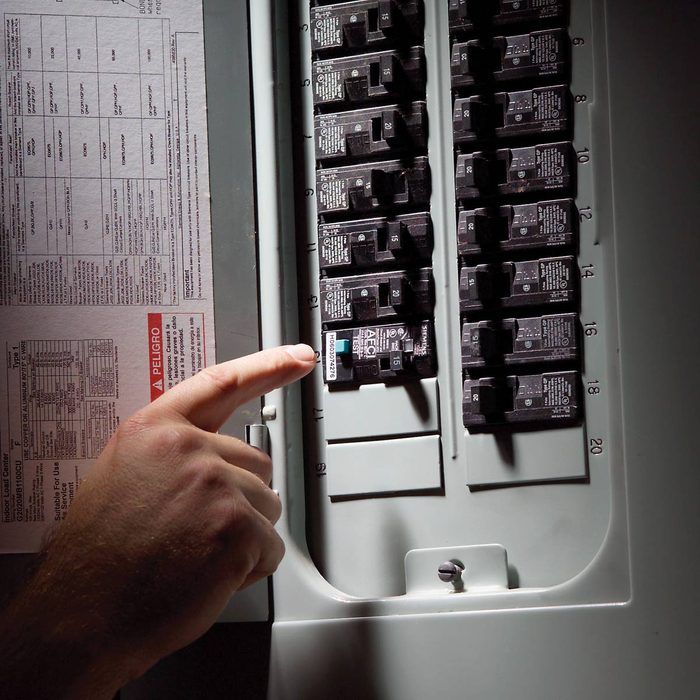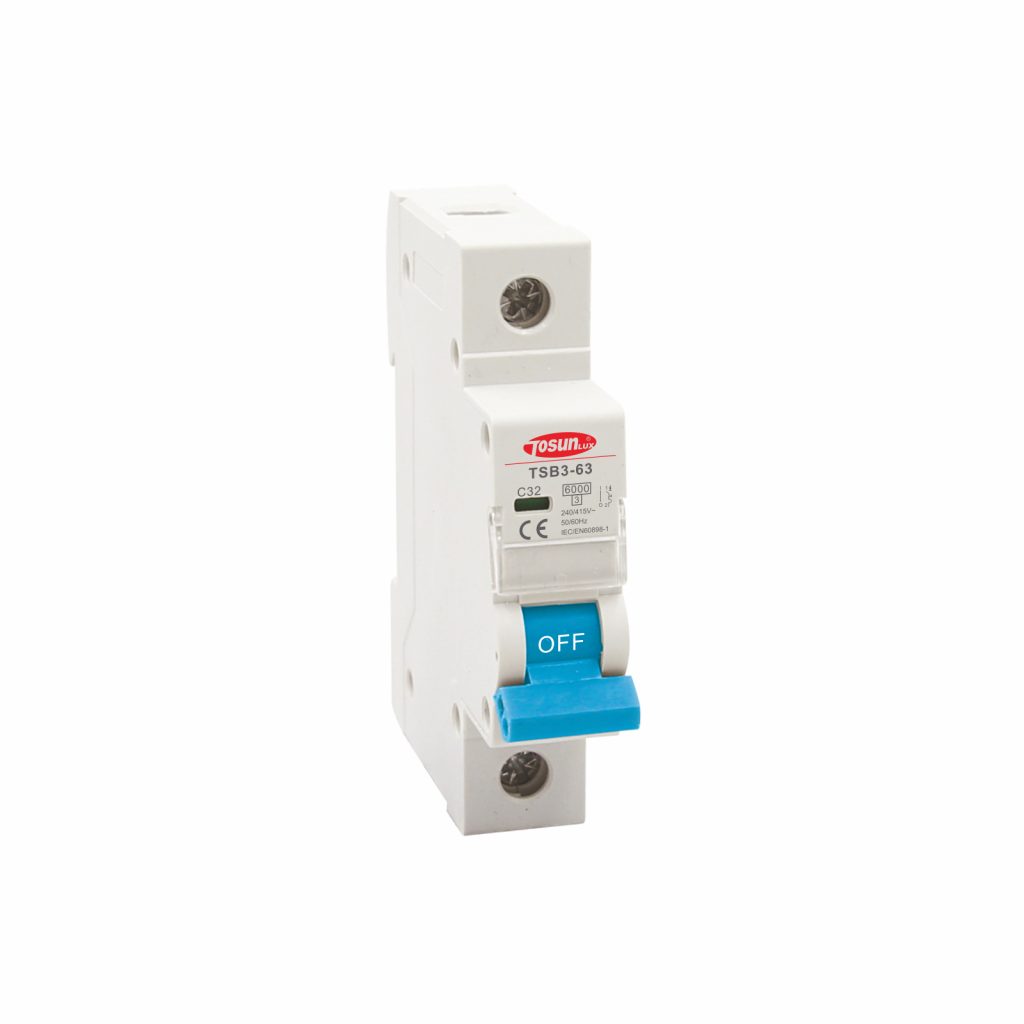How Long Does Circuit Breakers Last? What Affects Their Lifespan?
Table of Contents
ToggleWhat’s a circuit breaker? Circuit breakers are like the safety guards of your home’s electrical system. They stop the flow of electricity when something goes wrong, keeping you safe from fires and shocks.
But have you ever wondered how long a circuit breaker lasts? Let’s dive into their lifespan, what affects it, how to spot aging breakers, and tips to keep them working longer.
Typical Lifespan of Circuit Breakers
A circuit breaker is built to last a long time. On average, most circuit breakers have a lifespan of 30 to 40 years. Some can last even longer if they are used properly and maintained.
However, not all breakers last this long. Breakers in busy households or industrial setups may wear out faster due to heavy use.
Breakers in homes usually last longer because they don’t trip as often as those in factories or businesses. Industrial breakers handle large loads and constant usage, which causes more wear and tear over time.
Even though breakers are designed for durability, their lifespan can vary depending on how they are used and their environment.
Factors Affecting Circuit Breaker Longevity
How long a circuit breaker lasts depends on several factors. Here are the main things that affect their lifespan:
Frequency of Tripping
Every time a breaker trips, it gets a little weaker. Breakers are designed to handle occasional trips, but frequent tripping wears them down. For example, if your circuit is overloaded with too many devices, the breaker might trip more often, shortening its life.
Electrical Load
High-power appliances like heaters, air conditioners, and ovens put more stress on breakers. Breakers handling heavy loads are more likely to wear out faster than those handling smaller loads, like lights or fans.
Environmental Conditions
Where your breaker is installed can make a difference. Breakers in damp basements or dusty garages are exposed to moisture and debris, which can reduce their lifespan. On the other hand, breakers in clean and dry areas are likely to last longer.
Quality of the Breaker
Not all breakers are created equal. High-quality breakers tend to last longer and perform better than cheaper ones. Investing in good-quality breakers can save you from frequent replacements and potential electrical problems.
Age of Your Electrical System
If your home has an old electrical system, the breakers might not be able to handle modern electrical loads. This mismatch can cause them to wear out faster.
Signs of Aging Circuit Breakers

How can you tell if your breaker is nearing the end of its life? Here are some common signs that a breaker might need replacement:
Frequent Tripping
If your breaker trips more often than it used to, it could be getting weak. While breakers are designed to trip to protect your home, constant tripping might mean it’s time for a replacement.
Burning Smell or Discoloration
A breaker that overheats might give off a burning smell or show scorch marks around the panel. This is a serious warning sign that needs immediate attention.
Difficulty Resetting
Breakers should switch on and off smoothly. If you find it hard to reset a breaker after it trips, it might be worn out or damaged.
Flickering Lights or Appliances
If your lights flicker or your appliances stop working intermittently, it could mean the breaker isn’t distributing electricity properly. This is another sign that the breaker might be aging.
Physical Damage
If you notice cracks, rust, or other physical damage on the breaker or panel, it’s time to have it inspected by an electrician.
Extending the Lifespan of Circuit Breakers
While breakers don’t last forever, there are ways to make sure they last as long as possible:
Avoid Overloading Circuits
Don’t plug too many high-power devices into the same outlet or circuit. Spreading out your appliances across multiple circuits reduces the load and prevents unnecessary trips.
Regular Inspections
Check your breaker panel every few months. Look for signs of damage like rust, scorch marks, or loose connections. Regular inspections can catch problems before they get worse.
Keep the Panel Clean and Dry
Moisture and dust can harm your breaker panel. Keep the area around the panel free from clutter, and make sure it stays dry. Avoid storing liquids or cleaning products nearby.
Upgrade When Needed
If your electrical needs have grown over the years, your old breakers might not be enough. Upgrading to newer, higher-capacity breakers can reduce strain and extend their lifespan.
Use High-Quality Breakers
Investing in reliable, well-made breakers can save money in the long run. High-quality breakers are less likely to wear out quickly and can handle more trips without failing.
Call a Professional
Have a licensed electrician inspect your breakers every few years. They can check for hidden issues, ensure everything is running smoothly, and replace old or damaged breakers as needed.
Conclusion
Circuit breakers are essential for keeping your home safe, but even the best breakers don’t last forever.
So, how long does a circuit breaker last? Most will last 20 to 30 years, but their lifespan depends on how they are used and maintained. Regular inspections, avoiding overloads, and keeping the breaker panel clean can all help your breakers last longer.
For high-quality circuit breakers that truly last, look no further than TOSUNlux. Visit our website or contact us today so we can help you find the best circuit breakers that will serve you for many years!
Tel: +86-577-88671000
E-mail: ceo@tosun.com
Skype: tosunelectric
Wechat: +86-139 6881 9286
WhatsApp: +86-139 0587 7291
Address: Room No.1001 Wenzhou Fortune Center,Station Road, Wenzhou, China
REQUEST A QUOTE
WhatsApp us
 : +86-139 0587 7291
: +86-139 0587 7291 English
English Español
Español Русский
Русский Français
Français العربية
العربية Português do Brasil
Português do Brasil Українська
Українська Türkçe
Türkçe Polski
Polski Nederlands
Nederlands Italiano
Italiano Bahasa Indonesia
Bahasa Indonesia हिन्दी
हिन्दी اردو
اردو አማርኛ
አማርኛ Հայերեն
Հայերեն ไทย
ไทย Монгол
Монгол فارسی
فارسی Shqip
Shqip Ελληνικά
Ελληνικά



